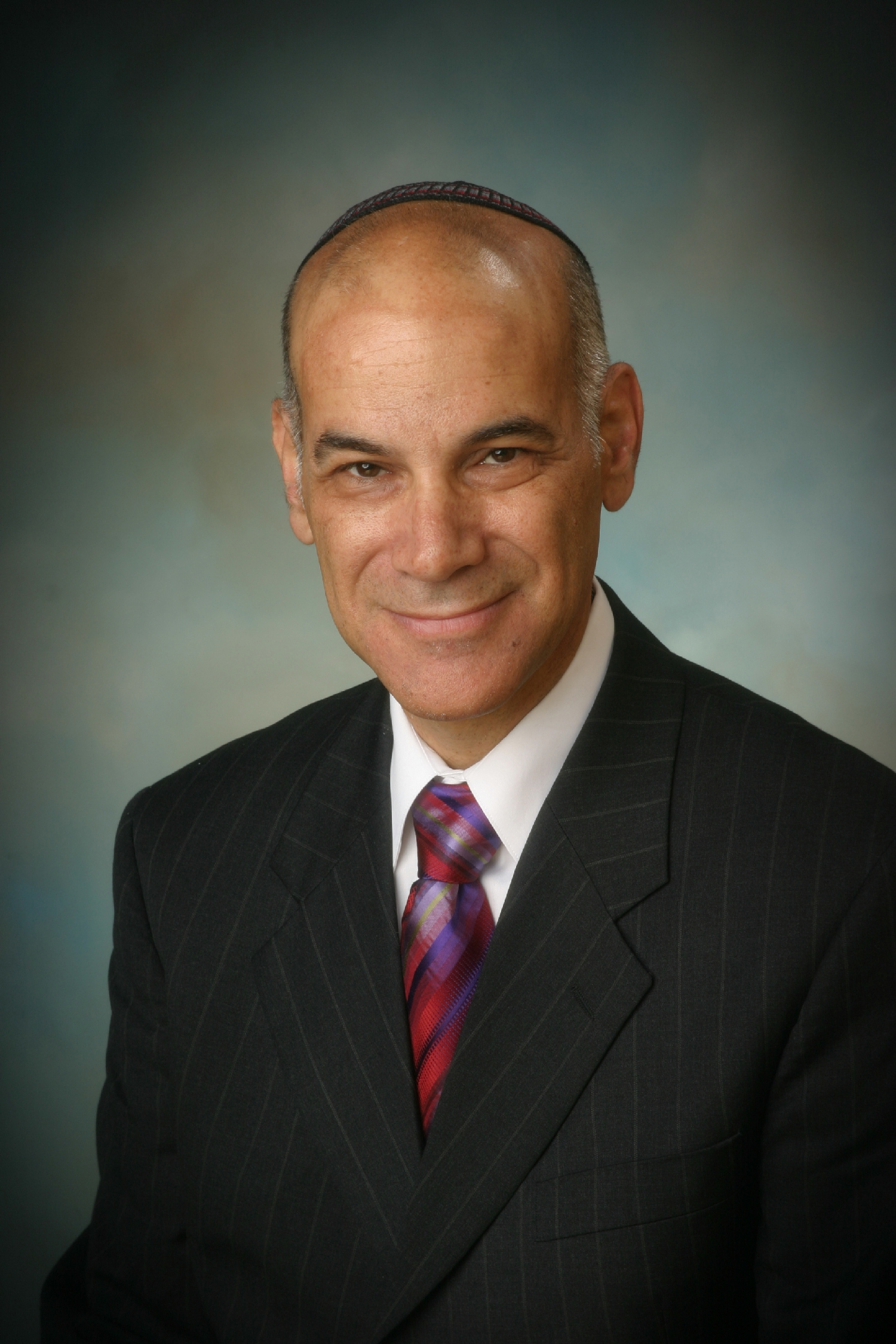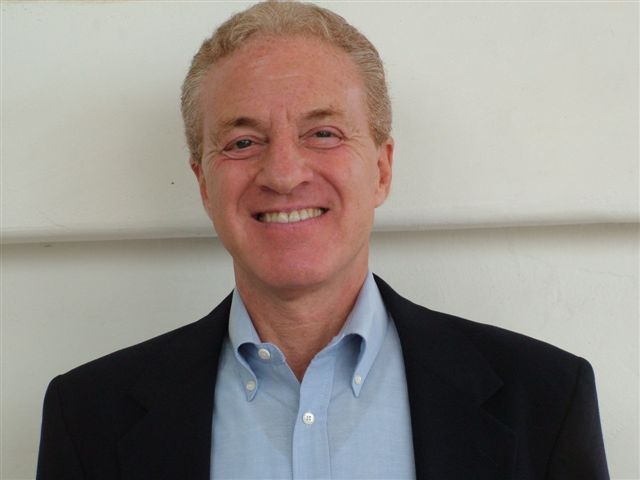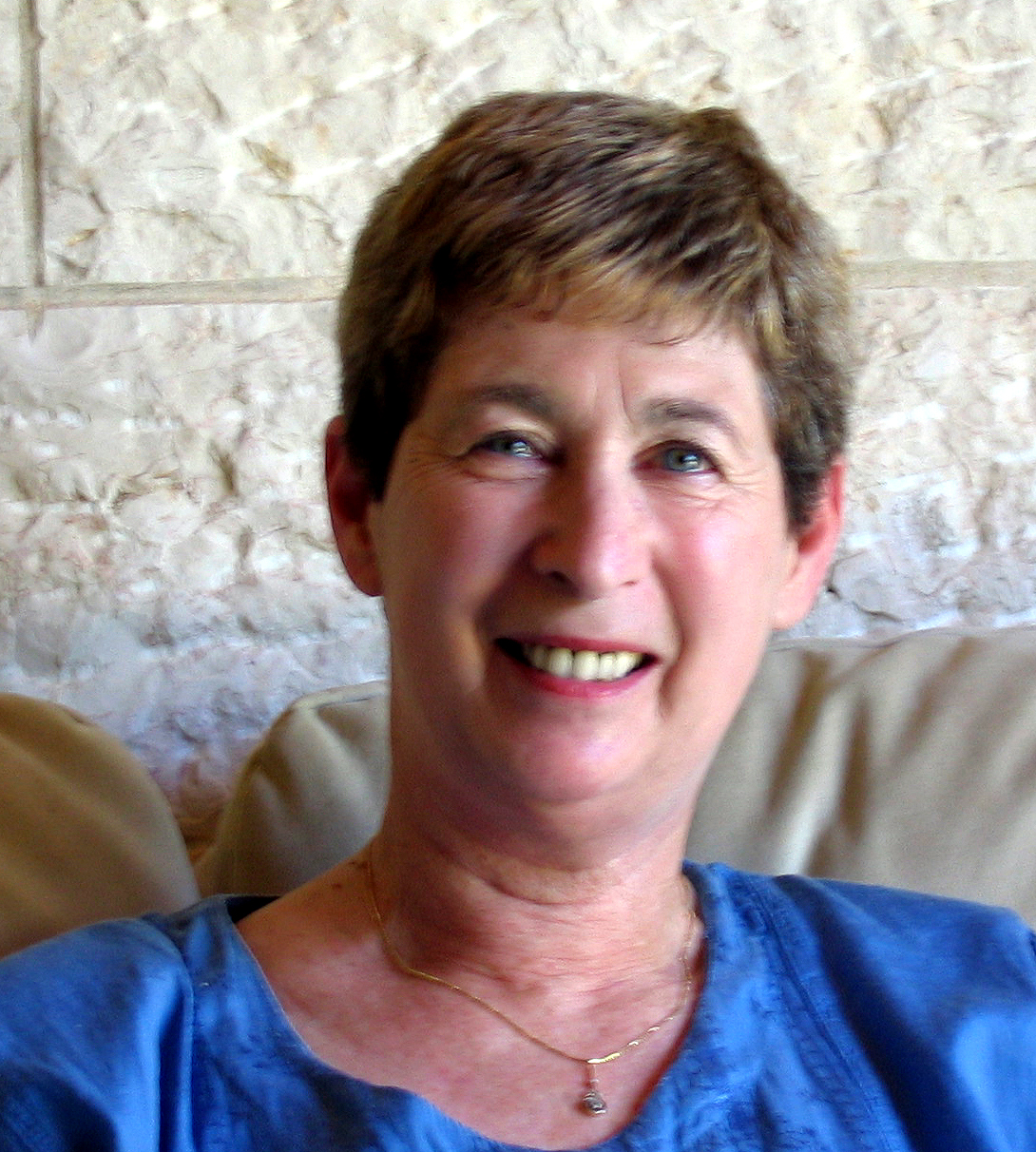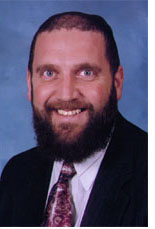|
San
Diego Jewish World
|
||||||||||||
"The
World Health Organization (WHO), meanwhile, says that the escalation of violence
is posing particular problems for health workers and patients, many of whom are
not able to leave their homes," Okabe also said. "At least four hospitals in
Gaza have been fired Be assured that the President remains steadfast in his unwavering support for Israel and ironclad in his resolve to ensure Israel's continued security. The bilateral relationship between the United States and Israel is and will remain rock solid. He is looking forward to his meeting next week with Prime Minister Olmert in DC. The situation in Gaza is on his mind and he is very troubled by the actions of Hamas. In addition, on all of the critical issues of the day, including Iran, Iraq, Syria, and the Global War on Terror, there is no question whatsoever that the President understands the risks, threats, and challenges that we face in this global, epic, battle against radicals and extremists. The President remains firm and resolved that this is a struggle we must win. We cannot allow victory for radicals or extremists anywhere whether it be Iraq, Iran, Gaza, or any of the frontlines in this war. It is clear that the President, on these issues, remains a realist and understands not only what failure and defeat will mean, but also realizes that in some of these areas we can and must do more to ensure victory. The President intends to use all of the tools at his disposal, not just militarily but also diplomatically and financially, via the use of sanctions and international pressure. I think it was clear to all of the participants the passion and resolve the President has, without regard to external political pressure, to do what it takes to protect our nation and our allies. Our meeting lasted for nearly an hour and a half, during which time there was extensive give and take between the President and the participants. This was an extremely important meeting and everybody came away with a clear sense of where the President stands on these critical issues. Brooks is executive director of the
Republican Jewish Coalition. By Asaf Romirowsky
PHILADELPHIA—Zionophobia, anti-Semitism and anti-Israelism
may be the coin of the realm in academic circles but they are proving to be a
highly devalued currencies. Recently, DePaul University decided to deny
tenure to Norman Finkelstein, an anti-Zionist Jewish professor who willingly
collaborates with neo-Nazis, Holocaust deniers and anti-Semites.
Additionally, Congressman Patrick J. Murphy (Democrat, Pennsylvania) introduced
legislation condemning the union of British academics for boycotting Israeli
academics. In a recent debate about Finkelstein’s tenure, terrorism expert Steve Emerson noted that, “[Finkelstein] cheers for Hezbollah terrorists anytime they kill Israelis… [and] called Elie Wiesel a ‘clown’ for his life's work making sure that we never forget the Holocaust.” It is also well documented that Finkelstein’s biggest boosters include Holocaust deniers like David Irving, who praise him for his Holocaust "scholarship.” Finkelstein is the same individual who did not want to participate in the recent Holocaust denial conference in Tehran because they would not give him enough time to present his work!
When it comes to the Israeli-Palestinian
conflict, Finkelstein's argument is that while primary documents indict Israel’s
treatment of the Palestinians, Israelis have stirred up a whirlwind of
controversy precisely in order to submerge this point. The Finkelstein controversy is one of those instances where alumni and donors have finally looked at where their money is being spent and the type of scholarship it promotes. About a month ago, a group of prominent Penn alumni and Philadelphia philanthropists published an open letter to the university in the Daily Pennsylvanian, accusing the administration of serving as an enabler of hate speech because of the political-science department's sponsorship of Finkelstein’s appearance on campus. It is hard to say how much if any impact the letter had on Finkelstein’s tenure, however, it was certainly an eye-opener for those who want to make a difference in their respective communities.
Congressman Murphy’s resolution dovetails with
the Finkelstein affair and grew out of a motion put forth May 30 at the annual
conference of the University and College Union (UCU), the largest body
representing academic staff in higher education in Britain. There the delegates
voted in support of a motion to discuss and thereby promote an academic boycott
against Israel. Members were urged to consider the "moral implications"
resulting in their links with Israeli universities, and to condemn Israel for
its "denial of educational rights" to Palestinians. Murphy’s legislation has garnered a wave of support from Democrats and Republicans Murphy called the union's decision a “hate-fueled boycott” that “stands in the way of progress.” The impetus for Murphy’s resolution has to do with the fact that today those who are anti-Israel insist that they are not anti-Semitic -- only anti-Zionist. That's the message that individuals like Finkelstein help fuel. But the transparency of singling out Israel for condemnation isn’t fooling anyone anymore. Finkelstein’s university has him figured out for the pseudo-scholar and hater that he is, and Congressman Murphy has got the UCU’s number as well.
The growing pervasiveness of such statements on
college campuses are indicative of a larger problem. Anti-Israel and
anti-American advocates are the ones who should be on the defensive, not those
working hard to ensure the US-Israeli alliance. And maybe for the first time,
they are on the defensive. Anti-boycott petition signed by 4,700-plus academics
Since that
time, more than 4,700 signatories have, for purposes of any academic boycott
targeting Israel, agreed to regard themselves as “…Israeli academics and decline
to participate in any activity from which Israeli academics are excluded.” The petition which has gained nearly 5000 signatures in 6 days hopes to gather over 10,000 academic signatures with the knowledge that if every academic receiving the SPME Faculty Forum signed, that goal would be reached immediately with over 12,000 on the subscription roles. Those who haven’t signed thep etition, may do so by clicking here. SPME is trying to raise funds to place these statements strategically. Persons interested in contributing financially may click here to support this effort to get the statement with its signers in major newspapers throughout the world. The foregoing story was provided by Scholars for Peace in the Middle East
ADL, AJC
accuse UN of institutionalizing anti-Israel bias NEW YORK (Press Release)— The Anti-Defamation League (ADL) today called on members of the U.N. Human Rights Council to reject the call by Council President Luis Alfonso de Alba for Israel, and Israel alone, to become part of the council's permanent agenda. "It has never been clearer that despite the rhetoric of reform, the Human Rights Council is no better, and appears well on its way to being even worse than the hopelessly biased and corrupt commission it replaced," said Abraham H. Foxman, ADL National Director. "It is shameful that Israel remains the most consistent target for unjustified vilification and demonization on the agenda of the institution that is supposed to have responsibility for preserving and enhancing human rights throughout the world." ADL this week wrote letters to the Geneva-based U.N. ambassadors of key nations who have membership on the council, urging them to "immediately intervene on this matter to rescue the very credibility and effectiveness of the council. "The President's call for the permanent institutionalization of discrimination against Israel renders absurd President de Alba's insistence that the council adhere to the principles of universality, impartiality, objectivity and non-selectiveness," said the letter from Glen S. Lewy, ADL National Chair, and Mr. Foxman.
The ADL leaders also
shared their concerns about Israel's status on the agenda of the Human Rights
Council in a letter to U.N. Secretary General Ban Ki-moon, encouraging him to
raise his voice against the council's "immoral fixation on Israel."
_______________________________________________
We chatted, they taking pride in the plaza and its sculptures. I then pointed at a building’s balcony about a block away, from which Hitler addressed over a million cheering Austrians after the Anschluss (political union of Germany and Austria in 1938). They replied, “We don’t discuss that.” Neither did the rest of the world, for decades after World War II, and universal knowledge of the Holocaust. In the emerging Cold War’s scramble for position, as the New York Times’ obituary of former U.N. Secretary General and former President of Austria, Kurt Waldheim, says:
Kurt Waldheim’s record of direct involvement in Nazi slaughter of Jews and of others who resisted or were deemed threats in the Balkans was ignored by both the Russians and the United States, who both had evidence in their possession immediately after the war. Even:
It was not until these and additional records were revealed in 1985, first by rival politicians in Austria and then further investigated and publicized by the World Jewish Congress, that the world woke up. But, “On June 8, 1986, in a two-round election, Mr. Waldheim won the runoff for Austria’s presidency with 53.9 percent of the 4.7 million votes cast. “ Waldheim maintained that he served in order to avoid persecution by the Nazis for his anti-Nazi father. However, as the scholar who investigated him said in his 1988 tome: “The fact that Waldheim played a significant role in military units that unquestionably committed war crimes makes him at the very least morally complicit in those crimes.” Going further, Richard Fisk, a British reporter known for his unflinching published opposition to any person, event or country he deems deficient of respect for human rights (though to extremes of heavy criticism of Israel and being an interviewing chum of Osama bin Laden), says:
Whether a war criminal or a willing accomplice of war criminals, Waldheim skated away from judgment for 40-years, with the complicity of and support from those who found him useful to their immediate ends.
His death shouldn’t be allowed to pass
without reflecting on other and current complicities by those who would
sacrifice millions of innocents to murderous tyrants and terrorists, for
immediate ease or avoidance of admitting or consciousness of the consequences.
Israel
has frum and not-so-frum Orthodox weddings I recently attended two weddings which were diametrically opposed in nature. Both were occasions of great rejoicing, but utterly different in almost every respect. The first was that of a very Orthodox young couple who had been introduced by a ‘shadchan.’ The wedding was held in a settlement which may well become part of the future Palestinian state. Men and women were seated separately (though there was also a ‘treife’ area, where men and women could sit together). Dancing was strictly separate, and both bride and groom wore long white dresses (the husband wore the traditional ‘kittel’). The wedding was followed by a week of dinner parties for the young couple, who were not allowed to sleep together after the first night for reasons of ritual ‘uncleanness.’ At the second wedding (which had been preceded by a civil marriage abroad), the bride wore a long red dress, very décolleté, and was seven months pregnant. She was radiant, a picture of health and happiness, and this was a true love match as well as a perfect example of ‘the ingathering of the exiles.’ The guests mingled freely, and the atmosphere was very relaxed. To my amazement, the Orthodox rabbi did not bat an eyelid and blithely performed the ceremony although the bride revealed large amounts of flesh. Once his task was completed, however, he beat a hasty retreat. The foregoing article was reprinted from the AJR Journal (Association of Jewish Refugees) in England.
Baron Guy de Rothschild dies at 98 Rothschild also founded and, from 1950 to 1982, presided over the United Jewish Welfare Fund, France's leading Jewish philanthropic organization. Along with David, he is survived by another son, Edouard, and many other relatives. A funeral is scheduled for 21 June in the main synagogue of Paris.
The foregoing article was provided by the World Jewish Congress
*Businessman
Ray Jinnah who raised funds for Democratic Senators Barbara Boxer of
California and Hillary Clinton of New York has been brought before the
federal court on the charge of illegally reimbursing employees for $60,000
contributions they made to the two senators in 2004.
Date: June
15, 2007 Q The latest on Gaza? MR. STANZEL: As you know, Secretary Rice called President Abbas yesterday to talk about the current situation and talk about the United States support for President Abbas and for the Palestinian moderates who have made the commitment to working with Israel and others in the region who want peace. We will continue to work with those in the Palestinian population who have chosen the pathway to peace. As you know, that choice is being challenged in Gaza by individuals who have attacked the legitimate security forces of the Palestinian Authority. And these individuals are trying to extinguish the hopes of the Palestinian people for their own state. We believe that the pathway to peace is through the negotiating table, not through violence, and not through terrorism. President Abbas, we believe, has exercised his lawful authority as President of the Palestinian Authority and leader of the people, and we support his decisions to try to end this violence. Q How concerned is the President about the prospect of a terrorist state in the middle of the Middle East? That's obviously been a focus of his foreign policy, trying to prevent that. MR. STANZEL: No one wants to abandon the hundreds of thousands, if not millions of people in the Gaza Strip to the mercies of a terrorist organization. We're certainly not going to participate in the extinguishing of the hopes of the whole -- of a whole swath of the Palestinian population who wants to live in a peaceful, stable, democratic state. So it's certainly of concern and we will continue to work with President Abbas. Q How do you isolate Hamas without alienating or turning your back on those people you're talking about? MR. STANZEL: I'm sorry, say that again? Q How do you isolate Hamas without turning your back on the very people that you're saying that you want to make sure you help, the Palestinian -- MR. STANZEL: We will -- one of the issues that has come up is the training. We do provide support to the forces in -- training and non-lethal support to the security forces that report to President Abbas. The State Department is actually looking at that support and that assistance to see what the best way forward is on that, and certainly the State Department and officials there have been very active on this issue, as well. Q What do you want Israel to do? MR. STANZEL: I'm going to refrain from getting into speculating about what we want each and every country in the region to do. But we support the people in the region who want to have a stable and peaceful region that can have two states living side-by-side, and get back to the Quartet process. Q Is the administration prepared to cede Gaza to Hamas? MR. STANZEL: As I indicated, no one wants to abandon the hopes of hundreds of thousands, if not millions of people in the Gaza Strip who want to live in peace and stability. Q But what are you going to do, then? MR. STANZEL: I'll just refer you back to the answer I gave a moment ago. Q What about an international force? I think somebody was asked that yesterday, also -- international force into the region?
MR. STANZEL: Tony Snow
answered that yesterday in the briefing, and I would refer you to his answer.
Date: June
15, 2007 QUESTION: Can I ask, Sean, your -- the White House gaggle this morning, which I guess was on Air Force One, your colleague Scott Stanzel said that the State Department was looking at ways -- how the security assistance to the Palestinian Authority might -- different ways to program that or I don't know what -- how to deal with that. MR. MCCORMACK: Right. QUESTION: Can you elaborate on what he was talking about? MR. MCCORMACK: Well, I can't offer any specifics for you at this point, but as a general matter we now have a new Palestinian Prime Minister that has been appointed by President Abbas. He's been charged with forming a government. This is a person that the international community has long experience with, has great confidence in. He has a sterling reputation among members of the international community. So given this change in circumstances, as he is forming his government, we are going to take a look at ways in which we can follow through on what the Secretary said yesterday. And that is, how are we going to support President Abbas and support a Palestinian government that is committed, presumably, to the Quartet principles. So we're going to take a look at all the various aspects of, you know, security assistance. Keith Dayton is going to continue his work. What, if anything, do we need to do in order to support President Abbas? Do we need to make changes to the program? So we'll take a look at that. (Jump to continuation)
_________________________________________________  -------------------------------------------------------------------------------------------------------------
-------------------------------------------------------------------------------------------------------------
CHARITY, PHILANTHROPY—Karl
Jacobs, M.D., on July 9will swim the Catalina Channel, a 21-mile stretch of
the Pacific Ocean between Catalina Island and Palos Verdes, California. A
lifelong swimmer, Jacobs has enjoyed the benefits of early swim instruction and
wishes to help make swim lessons available to every child. He has dedicated this
swim to supporting the education outreach efforts of the San Diego Surf
Lifesaving Association. Here is
a website for
anyone who would like to help sponsor his efforts. ... San Diego County Sheriff
Bill Kolender today accepted a gift from Adobe Animal Hospital of Ramona of
four resuscitation masks for possible use by the department's 18 K-9 corps dogs.
Said Kolender: "The dogs assigned to the Search and Rescue Unit are an integral
component to the success of all missions. We need o ensure their health and
safety, just as with any employee. We greatly appreciate this kind donation from
the Adobe Animal Hospital."
San Diego Jewish Academy Class of 2007:
Row 1 (Front L-R): David Fechter, Jakob Hytken, Aaron
Shinoff, Yuliya Royter, Brandon Sherman, Joshua Shinoff, Andrew Miller, Joel
Feinstein, Jessica Felber, Tami Shore, Alexandra Leon and Rebeca Karcz-Klein.
Row 2 (L-R): Daniela Atri, Ariela Behar, Bristal Stephens, Arielle Levy, Lauren
Venditti, Nicole Bakhshi, Natalie Colker, Madison Stern, Daniella Shevel, Amy
Pamensky, Giselle Miselewicz, Jennifer Brown and Jacob Frank. Row 3 (L-R): Adam
Benaroya, Ryan Glovinsky, Jordanna Rose, Kristen Wilcox, Lee Wollach, Parker
Bush, Max Doshay, Saul Moch, Evan Hirschbein, Chelsea Wigle, Elizabeth
Blumenfeld, Brittany Segal and Thomas Yearsley. Row 4 (Back L-R): Principal Dr.
Jeff Davis, Athletic Coach Charlie Wund, Julien Bortz, Bret Linton, Jordan
Weller, Eric Gillman, Edward Caplan, Dean of Academic Affairs Steve Kahn and
Dean of Students Brian Kissell. (Photo by Sam Ulrich) SAN DIEGO (Press Release)—Forty-three graduating seniors at San Diego Jewish Academy have rolled up some impressive statistics. They have received 182 acceptances to 66 universities and colleges located in 25 states and three countries. Furthermore, they collectively have been offered more than $1 million in scholarships and three were selected as National Merit Commended Scholars. Meanwhile, based on their PSAT schores, San Diego Jewish Academy Juniors Ron Bendor, Will Bohannon and Jennifer Popp are likely to be recognized by the National Merit Scholarship Corporation as National Merit Commended Scholars. These students will be notified in the fall whether any or all of them will have progressed to the National Merit Scholarship Semi-Finalist round. “We are proud of all our graduates,” commented SDJA high school principal, Dr. Jeff Davis. “Through an integrated curriculum of general and Judaic Studies, SDJA students complete 100 more credits for graduation than public and private schools. This demonstrates to college admissions counselors that our students are prepared for the rigorous educational environment at the university level.” The college counseling process at San Diego Jewish Academy begins in the eleventh grade. On a weekly basis, students meet with the Dean of Academic Affairs, Steve Kahn, in groups and individually, to discuss standardized tests and transcripts, and work on personal essays, applications and resumes. Letters of recommendation are written by a five-member College Recommendation Committee. “Each story is a success story in itself,” said Kahn. “Matching a student with the right college is our goal. We engage the student and the parents in an intensive thought process, which helps the family evaluate and organize the information, and choose the best path.” San Diego Jewish Academy challenges its students “to achieve their full academic potential and become individuals of strong moral and ethical character, while inspiring them to make Judaism a vital and relevant aspect of their lives,” according to a spokesperson. More information is available by emailing Judith Gross, admissions director, at telephoning her at (858) 704-3716. The foregoing story was provided by the San Diego Jewish Academy.
JCF offers Tikkun Olam
Camp for youthful philanthropists to learn about the art of giving
Tikkun Olam Camp will encourage students ages
14-18 to become philanthropists by empowering them with skills to donate
effectively. In the ten years since the Foundation launched the Community Youth
Foundation (CYF), more than 223 students from various denominations and
affiliations in San Diego have gained firsthand experience in community service. For Marissa Garfield – who is now the full-time donor services and grants manager at the Foundation – the introduction to Jewish philanthropy came in 2005 as a CYF participant while a senior at University of California, San Diego. Rabbi Lisa Goldstein, executive director of Hillel of San Diego, recommended Marissa for the CYF program. As a participant in CYF, Garfield gained exposure to Jewish philanthropy and the impact the Foundation has on the non-profit sector, both Jewish and general. Ultimately her CYF experience was pivotal in Garfield’s decision to pursue a job with the Foundation. This year she is director of Tikkun Olam Camp and brings her own experience and passion to planning the program to ensure that future participants have an interesting and meaningful experience. “This pilot program will be an opportunity for teens to make new friends while investigating career opportunities and experiencing first-hand volunteering and charitable giving,” said Garfield. “As a Community Youth Foundation alumna myself, I am very familiar with the excitement and satisfaction that comes from learning about the organizations that are doing such great work in our community.” Wayne Klitofsky, a 2007 graduate of UCSD, experienced a similar life-changing experience through the program, and became a philanthropist himself. Following the program, on a trip to Israel, he decided to give 10 percent of his annual income to worthy causes. Last year, Klitofsky donated to seven organizations including United Jewish Federation of San Diego and Hillel of San Diego. Klitofsky’s dream is to be able to continue giving and that his donations will make a significant difference in people’s lives. This summer, participants in Tikkun Olam Camp will interact with members of the community, engage in volunteer opportunities and community service projects and build trust and friendships. Students will give away thousands of dollars to benefit the San Diego community, earn community service hours and have fun with other teens. "We are proud to be developing the young leaders that will keep our community’s future strong,” said Marjory Kaplan, chief executive officer of the Foundation. "The experience of this program will provide the students with the passion, skills and knowledge necessary to lead others to support the community through contributions and volunteerism." Tikkun Olam Camp is open to all students who will be in high school next fall. Registration is open and space is limited. Some scholarships are available. Tikkun Olam Camp will be based at the Foundation’s office in San Diego and participants will visit organizations throughout the region. For more information, please email Jamie Zander or call her at (858)279-2740 or visit the Tikkun Olam Camp website.
__________________________ The reasoning of a hoarse Torah-reader Korach was consumed with envy, which led him to challenge Moshe Rabbeinu's leadership of the Bnei Yisroel (Children of Israel). He started a revolt which almost ripped the young nation apart. The Rosh Yeshiva, Rabbeinu HoRav Henoch Leibowitz shlit"a, explained that in order for Korach to perpetrate the defiant rebellion against the beloved Moshe Rabbeinu, he needed to emotionally and psychologically separate himself from the Bnei Yisroel, for the connection that we feel as members of Bnei Yisroel is so powerful that it would have prevented Korach from waging war against Moshe, despite his fury. Had he not first divorced himself from the Jewish people, the natural love would have quelled the rage. The unique bond that we have; the depth and sensitivity with which we care about each other is one of the hallmarks of the Jewish people, as the following true story submitted by Rabbi Dovid Max, Community Torah Center of Bucks County Pennsylvania, illustrates: There were two Ba'alei Keriah [Torah Chanters] in a shul. For the sake of anonymity we will call them Reuvain and Shimon. They read on alternate weeks. It was Reuvain's week to read. However, on Friday night Reuvain came into shul and told the Gabbai "I am hoarse. I cannot lein (read from the Torah) tomorrow. Please ask Shimon to pinch hit for me this Shabbos." The Gabbai went to Shimon and relayed Reuvain's message. Shimon said there would be no problem, he would prepare during the long Friday night and be ready to lein the next morning. The next morning when they took out the Torah Reuvain went up to lein! However, he was obviously hoarse and at the end of the first aliyah (section of Torah reading) he announced loudly, "I can't go any further. My voice is hoarse. Let Shimon lein." Shimon approached the bimah and took over the Torah reading from that point forward. After services, the Gabbai approached Reuvain and asked for an explanation. "I don't understand. What was the whole act over here? We discussed this last night. Everything was a done deal. Shimon was going to read the entire Torah portion from the beginning, why did you start reading this morning and make a whole act as if this was something sudden?" Reuvain explained that he was concerned that he did not give Shimon enough time to prepare properly. He was afraid that Shimon would have to lein on short notice and since he was not properly prepared, he might make many mistakes and embarrass himself. "Many people would not remember that this was not Shimon's week to lein. They would think that he was making mistakes because he is not a good Ba'al Koreh. I wanted to make clear to everyone that it was really my week and that Shimon was pinch-hitting for me on short notice." Dedicated by Lenny Bromberg in memory of his mother Mrs. Harriet Bromberg _________________________________________________________________  Torah
on One Foot Torah
on One FootBy Rabbi Leonard Rosenthal Tifereth Israel Synagogue, San Diego ___________________________parshat Korach _________ An aging secret from the Maggid of Konitsch My father, of blessed memory, took an early retirement from the Los Angeles Unified School system when he turned 62. During his first year of retirement I remember him sleeping all day. I thought to myself: “If this is how he is going to spend his time I do not think he will be with us very long.” After the first year he got up and went back to work as a substitute teacher a few times a week. When he was not working he found new hobbies to keep him busy, hobbies which continued to engage his mind, body, and spirit even after he quit teaching permanently. He lived an active and full life and slowed down only after he became ill.In recent weeks I have had several conversations with senior citizens who do not feel “senior” at all. They are active, healthy, still working full or part time, traveling, exercising, and otherwise enjoying their relationships, their lives, and the world around them. They feel no need to slow down, nor is there any reason for them to do so. I often think about the wise words which were shared with me many years ago: “You should never think about what you are retiring from, you should always concentrate on what you are retiring to.” Rabbi Yisrael, the Maggid of Konitsch, lived to a ripe old age even though he had been weak and sickly his entire life. His disciples asked him: “What has enabled you to live so long, despite your infirmities?” Rabbi Yisrael answered them: “People’s lives comes to an end once they finish their earthly tasks. Therefore, every time I concluded something I was working on and I sensed my end was near, I immediately sought out something new through which I could serve God. This was how I pushed death aside, by always having something new through which I could serve God in this world rather than the next.” (Otzar Chaim, P. Korach, p. 148) Rabbi Yisrael’s sound advice should inspire all of us to fill our days and years with worthy, fun, creative, and holy activities and adventures, regardlesss of our age.
N ews Sleuths...(Continued from above) QUESTION: The existing program, the 60 million that -- MR. MCCORMACK: The existing program. Right, exactly. So we'll take a look at that. The discussion among the Quartet has already begun about providing -- given these changed circumstances, is the Quartet going to take a look at what else it might do in terms of providing assistance to the Palestinian Authority. We ourselves have not done -- very rarely done that directly to the Palestinian Authority in the past. So we're going to take a look, given the changed circumstances with the new Palestinian government, at what we might do and also start those conversations. Well, we've already started conversations with others about how to respond to the new Palestinian Government and support them. QUESTION: Is there any thought to the idea that as the Palestinian Authority's authority shrinks that the aid or the assistance might shrink as well? MR. MCCORMACK: I haven't heard anybody talk in that way, Matt. I think there's still real needs. You still have to build up Palestinian institutions. You still have to have a professional security force. And it is our view that this Palestinian Government is a Palestinian Government for all Palestinians, including in Gaza. Now, as a practical matter, given Hamas's actions over the past couple of days, they are not going to be able to exert much control over what happens in Gaza. That will fall to the responsibility -- that responsibility falls to Hamas. They are going to be responsible now for feeding, providing for 1.3 million Palestinians. Now, the international community is also going to very closely monitor the humanitarian situation in Gaza. There are food stocks there. So we are going to take a look -- we're going to watch very closely the humanitarian situation there. But the -- through their actions, through this attack on legitimate Palestinian institutions, they have assumed full and complete responsibility for those Palestinians. And in that sense, it is really the Palestinian people who are the biggest victims out of what Hamas has done. QUESTION: Is there any -- QUESTION: Just to -- no, go ahead. QUESTION: Well, just -- is there any concern that assistance, perhaps in-kind assistance or cash that may have already gone to Fatah elements in Gaza is now in the hands of Hamas? MR. MCCORMACK: I can't -- there was a secure vetted mechanism to provide monies via Salam Fayyed who was Finance Minister in this government. I can't tell you what if any assets Hamas might have in its hands as a result of its attacks. At this point, I'm not sure anybody's done that assessment yet, but I'm sure people will go back and do that. QUESTION: Well, presumably anything that went to Gaza is now -- MR. MCCORMACK: Yeah, and I can't tell you, Matt. I can't tell you. I'm sure people will do the forensics on it, but I can't tell you standing here right now. Yeah. QUESTION: (inaudible) things. On the question of the security assistance that the U.S. has been providing to the Palestinians through General Dayton, Matt suggested the possibility of the amount being reduced. But what I want to ask you is if you can be more explicit. When you said you were looking at changes to the program, are you, in fact, considering increasing the amount of money that would go? The reason I ask is Assistant Secretary Welch the last time he testified on this in Congress at the very end of his testimony said that they were considering -- you were considering requesting a reprogramming of the $27 million, roughly, that didn't go through. MR. MCCORMACK: Right. QUESTION: So you were clearly thinking about this even before this -- MR. MCCORMACK: There was some -- you're correct; there was still some in reserve. I made the statement only to indicate that we're going to take a look at what it is that we can do, what existing programs are out there, what ongoing programs are out there, what if any changes might need to be made. I'm not presuming any changes need to be made at this point. So those are things that we're going to take a look at over the next couple days. QUESTION: But surely it's more not less. I mean, surely exactly what you want to avoid is a repeat of what happened to -- MR. MCCORMACK: I certainly don't mean to indicate any decrease in the level of aid; only that we have existing programs, we have existing efforts and we want to take a look at whether or not those are -- those efforts are appropriate to the task. QUESTION: Can you give us a readout of the Quartet call and of whether there was active consideration of ending the ban on direct aid to a new Palestinian government that accepts the Quartet principles -- MR. MCCORMACK: Right. QUESTION: -- and, yeah. MR. MCCORMACK: In terms of readout of the Quartet phone call, the way these usually happen -- the way it usually happens is there's a statement that emerges and they're at the David Welch level now looking at that. It will emerge at some point, perhaps as early as this afternoon. It was a first discussion in the wake of what Hamas has done in the Gaza and I would say that those discussions about how the international community, and specifically the Quartet, might respond in a positive manner to a new Palestinian government that adheres to the Quartet principles -- its members adhere to the Quartet principles started. So we started that conversation. I can't tell you that they have come to any definitive conclusions. And you have to remember this is taking place at the ministerial level. They're not there with spreadsheets and lining in, lining out dollar amount. So they -- it was the beginning of a general discussion about how the international system might react in a positive way to support President Abbas, Palestinian moderates and a new Palestinian Government. QUESTION: And some practicalities on this. Would you need a new Palestinian cabinet to have: (a) been sworn in; and (b) made some kind of a statement about its support for the Quartet principles to respond in a tangible positive way? MR. MCCORMACK: You know, I'm not going to lay out the sort, of you know, the sort of hurdles. It could be that you look at the composition of this said government and it comprises people who have a long history of meeting, in essence, the Quartet principles not only through their words, but through their actions. So I'm not going to try to lay out some specific tests. I think that if you take a look at the Prime Minister of this government, you look at the fact that President Abbas has appointed Salam Fayyad as the Prime Minister to form a government that this is a government that intends to abide by the principles that previous Palestinian governments had before -- prior to the Hamas-led governments. QUESTION: The last one for me on this, if I may. If you were to respond positively, which I'm taking as a code of, you know, removing the aid ban or the ban on direct aid, would you have any opposition to such aid flowing to Gaza which at least theoretically you say is under the Palestinian government but in reality is controlled by Hamas on the ground? MR. MCCORMACK: Right. I -- look, people are going to take a look at the first question, you know, how can you support the Abbas government? I think we want to be very positive and forward looking on that. In terms of the questions of ensuring that monies don't flow to Hamas or fall into the hands of Hamas officials, I think the same strictures apply. Obviously, it's a tough question when you put that -- rack that up against the need to and desire to help alleviate any humanitarian suffering that may accrue as a result of Hamas' actions. So people are going to look at that. We, of course, have our own laws and regulations. We're going to abide by those and we're going to ensure that -- we're going to have to assure ourselves that any funds are not directly aiding Hamas and -- according to the U.S. law and U.S. regulations. People are going to take a look at these things, but there's -- so you have, in essence, some competing demands here. You have a very clear desire to ensure that humanitarian assistance gets to the Palestinian people who, as I said before, are really the victims in all of this, and on the other hand, making sure that this is -- that these efforts don't end up directly aiding Hamas. Yeah. QUESTION: It has been roughly one year that the boycott of the government -- the Hamas government has been in place. And what is your assessment now? Do you think it's -- do you think it was a success, because it has shown that Hamas cannot govern? Or do you think -- do you have any regret about the situation it has led to? MR. MCCORMACK: Well, any idea that somehow, the international community was responsible for the actions Hamas took, I think, is just completely off base. This is -- these were the actions of a terrorist organization. They showed their true colors. They showed their true colors in executing people -- as reported by the news -- in hospitals, dragging them out of their houses and shooting them in the head in front of their families. So we got a clear view of exactly the nature of this organization and I think those actions actually bear out the stance of the international community in saying it is not going to -- it was not going to provide aid to Hamas unless it met certain conditions. And I think that given what we have seen over the past few days, the actions of Hamas only validate the principled stand that the international system took over the past year. Now, as I said, the -- you know, the real victims in all this are the Palestinian people. We don't want to see the Palestinian people suffer as a result of the choices of a few people who have decided to launch these attacks and the few people who have decided that they are not going to meet the demands of the international community. We will see. We will see what happens -- happens in the future. Like I said, Hamas now has responsibility for providing sustenance and other materials needs for the Palestinians now in Gaza. We'll see what happens. QUESTION: Sean, now you're sort of stepping back and leaving Hamas to govern, what does that mean for the region and for the United States that Hamas will be running this strip of land? What are your concerns about that? What are the dangers of that? MR. MCCORMACK: Well, there -- well, first of all, let me reiterate the fact that in our view the Palestinian Government that is being formed by Prime Minister Salam Fayyed is the Palestinian Government for all Palestinians, including those in Gaza, with the caveats of course that I mentioned in that -- in practical terms, that's a very difficult proposition. I think that everybody's primary concern is security. And I know that Israeli officials, as reported in the press, are concerned about that, looking at that. It's important that Egypt ensure that there is not the smuggling that has gone on from Egypt into Gaza via the Philadelphi corridor. That's going to be very important to ensure that you don't see an inflow of more violent extremists, more cash, more arms, more ammunition into the Gaza via those smuggling tunnels. So that's going to be very important. And beyond that, I'm sure that people are looking at other potential ramifications of this down the road. QUESTION: Are you concerned about al-Qaeda? MR. MCCORMACK: Al-Qaeda filling in there? QUESTION: Mm-hmm. MR. MCCORMACK: I haven't heard any reports of that, but of course we're concerned about others trying to take advantage of the situation. In the past, Iran has meddled in Palestinian affairs. You have had other Palestinian rejectionist groups that operate out of Syria flowing in people and money and arms into those areas. I can't tell you that there has been any al-Qaida presence. I'm not aware of any. QUESTION: In that context, (inaudible) to the proposal for an international force along that small corridor? MR. MCCORMACK: No, look, I think everybody is going to take a hard look at any ideas that are put out there. I know that this has been a suggestion by a few. But I think the primary responsibility for that, if not the full responsibility of that, will fall to the Egyptian Government, and they fully understand the importance of it. They understand that there's more to do in that regard in stopping any smuggling that goes on between Egypt and the Gaza Strip. They have over the recent period of time actually increased the assets that they have in that area. So it is going to be a big responsibility that will fall to Egypt. And whether there's any need for or interest in international forces in that area, we'll see. I'm sure people will take a look at it and make assessments. QUESTION: Sean, have you seen any evidence at all of an invisible or not so invisible hand of Syria or Iran in what's going on? MR. MCCORMACK: You know, I haven't checked into this, Matt. I have not come across anything that indicates that those outside the Palestinian areas were pulling the strings on this. It may well be the case, and over time that may well become evident, but I can't tell you that right now. QUESTION: Sean, another potential victim of this is the Secretary's efforts to nurture some kind of a dialogue about peace between the Israelis and the Palestinians. And I wonder how you think you can proceed to advance that effort, given that the cleavages within the Palestinians have been so vividly and brutally displayed. Do you plan to keep trying to negotiate with President Abbas when he doesn't control the territory where about half his people live? What is your -- how do you plan to proceed on that -- MR. MCCORMACK: Well, the Secretary and the President are committed to trying to move forward the Palestinian-Israeli track as well as the Israeli-Arab track. In terms of immediate practical arrangements, I expect that she probably will keep plans to travel to the region towards the end of the month. We'll keep you up to date if there are any changes to that. I think it becomes all the more important to continue those efforts to encourage Israelis and Palestinians to come together in the wake of what Hamas has done. It is all the more important to try to resolve the practical daily irritants in the lives of both Israelis and Palestinians and all the more important to work on what we have referred to as a political horizon, so that the Palestinian people understand that there is a very clear pathway for them to achieve a Palestinian state. That is the choice that is between the Palestinian people and before the Palestinian people. And fundamentally it's only the Palestinian people that can make that choice. They can choose between that pathway and they can choose another pathway that leads down the way of violent extremism, which is a dead end. It's not going to result in a Palestinian state. So I would put to you that it is actually all the more important that these efforts continue, that the -- and I can assure that the Secretary is going to continue to apply her focus and her energy to those efforts. QUESTION: Just one more on this. There's -- you know, there's this idea that has surfaced more in the media than I think elsewhere of a sort of West Bank first strategy. Is that what you're considering? Does that make sense to you? MR. MCCORMACK: Arshad, I think that over the coming days and weeks we'll assess how it is that we move the process forward. At the moment we do have channels between the Israelis and the Palestinians. And I would add that if you just look at the public comments of the Israeli Government, they have expressed their interest in working with President Abbas and working with him to advance that Israeli-Palestinian track. QUESTION: So -- let me get this right. You said at this point you do not rule out the idea of kind of a Palestine/West Bank with -- at peace with a peace deal? MR. MCCORMACK: Well, that's not what I said, Matt. That's not what I said. QUESTION: Well, you didn't -- MR. MCCORMACK: What I said was that we are going to in the coming days and weeks look at how we might move this process forward. QUESTION: Is that -- and that could be a possible -- I'm just saying bifurcation of -- MR. MCCORMACK: You know, this is -- you're putting out these straw men. What I'm saying is we're going to take a look at how to move this process forward. QUESTION: Well, you say I'm putting out straw men, but you're not knocking the straw man down? You're saying-- MR. MCCORMACK: Well, I'm not trying to guide you in any particular direction here. I'm not going to, you know, -- I am not going to try to lock the Secretary and the President into a particular path at this point. We are going to take a look at how to move forward. QUESTION: Is this a suggestion that is being considered as a way to move forward? MR. MCCORMACK: We're going to take a look at how to move forward. QUESTION: Can you rule it out as something? MR. MCCORMACK: I've answered your question. Joel. QUESTION: Sean, was this past Sunday's Palestinian Capitol Hill rally and their lobbying of Congress on Monday in any way trying to influence members of Congress, of course, seen by the Iranians and al-Qaeda and did the same group attempt to come to the State Department to talk to any of the officials in that regard? MR. MCCORMACK: Not that I know of, Joel. No. ** QUESTION: .. This morning we asked about the calls the Secretary made.MR. MCCORMACK: Oh, yeah. Sure. QUESTION: Can you give us a list of those.
MR. MCCORMACK: Sure. We'll go through -- go
through some of the calls that she made yesterday. She talked -- and I talked
about some of these yesterday. She talked to President Abbas, talked to Israeli
President Peres to congratulate him. She talked to Egyptian intelligence chief
Suleiman. She spoke with Foreign Minister Livni.
MR. MCCORMACK: Yeah. No, yesterday. And then she also talked to him on Tuesday. QUESTION: She talked to Livni yesterday? MR. MCCORMACK: She talked to Livni yesterday. QUESTION: And Monday, right? MR. MCCORMACK: And Monday, you're correct. She spoke with the Norwegian Foreign Minister and she spoke with Secretary General Ban Ki-moon. And as you know, she had the Quartet call this morning and Foreign Minister Lavrov, EU High Rep. Solana, EU Foreign Minister Ferrero-Waldner, German Foreign Minister Steinmeier, Secretary General Ban and the Secretary were on those -- was on that call. That's -- those are the phone calls. Anything else on the Middle East? Samir. QUESTION: Do you think this situation will
help advance the peace process now, the President's vision?
Date: June
15, 2007
HUMANITARIAN AGENCIES RAISE ALARM ABOUT GAZA NEEDS
|

 Freedom
at Issue
Freedom
at Issue "After
12 May 1938, Jewish citizens of Vienna were forced to scrub the streets that had
been smeared with slogans. The bronze rendering of a kneeling street-washing Jew
is a reminder of the degradation and humiliation that preceded merciless
persecution."
"After
12 May 1938, Jewish citizens of Vienna were forced to scrub the streets that had
been smeared with slogans. The bronze rendering of a kneeling street-washing Jew
is a reminder of the degradation and humiliation that preceded merciless
persecution." 

 Your specialist in
Your specialist in
 Jews
in the News
Jews
in the News
 News Sleuths:
News Sleuths: 

